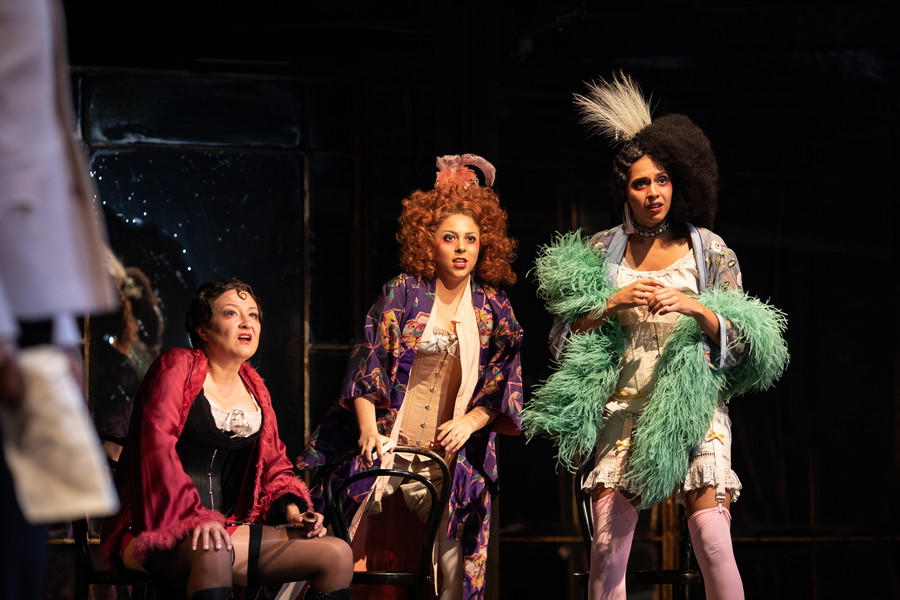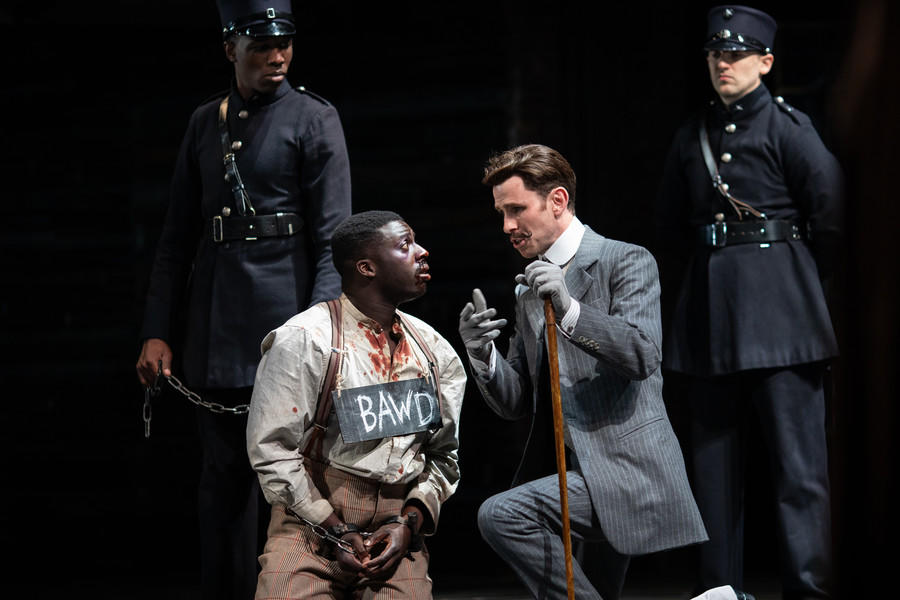Measure for Measure at The Barbican: Where the tenacious bonds of sexual desire are reflected in the mirrors of Freudian theory
Set in Freud’s Vienna, this production of Measure for Measure, directed by Gregory Doran, allows for a deeper, psychoanalytical exploration. The two order-defining forces in human civilisation – Law and Religion – at play in the thick of the sexual decadence of 1900s Vienna is a recipe for conflict and provokes the question: What is the fruit of sex?
Is it procreation? Is it love? Is it the means to kill desire?

The Duke of Vienna (Anthony Byrne) leaves Vienna, a city out of control in its sexual appetite and blatant debauchery. In his place, he appoints his deputy Angelo (Sandy Grierson) to take over. Angelo is a cold, austere man who shows no leniency when it comes to any sort of sexual deviation, especially prostitution. In fact, Angelo threatens to close all the brothels. Under these strict laws, a young man named Claudio (James Cooney) is sentenced to death for having made his unwed lover, Juliet (Amy Trigg), pregnant. His friend, Lucio (Joseph Arkley), alerts his sister Isabella (Lucy Phelps), a young novice nun, of his fate. Isabella pays a visit to Angelo, pleading with him to show mercy and let her brother go. Angelo asks that in exchange for her brother’s freedom, she must sleep with him. Isabella refuses. The Duke, disguised as a Friar, overhears her conversation with her brother during her visit and lets her know that Angelo has a secret ex-fiancée, Mariana. Isabella plots with Mariana to find a way to trick Angelo and thus free her brother.
The play opens at once with a court dance under a twinkling chandelier, where dancers wearing bright, embellished costumes. However, this indulgence in colour seems to almost entirely satiated within the first 60 seconds. Costume Supervisor Rachel Dickson and Head of Wardrobe Ellie Taylor have opted for muted greys and lifeless browns for most of the cast, perhaps to get across the stuffiness of the soul-destroying rule under Angelo, and the modesty of the Church. The only characters radiantly dressed are sex workers.

The themes of aesthetic beauty, lust, hypocrisy and repression are brilliantly captured by the set alone. At the back, you will notice mirrors, which move according to the scene, that but keep the presence of reflections almost constant. There is a sinister undertone to seeing the reflected back of an actor, giving the impression that there is always something watching, that sordid secrets have witnesses. This manifestation of the Freudian idea of the ego, in which our external identities conceal the unutterable truths of our desires, is magnified by this use of mirrors in which Angelo cannot escape himself. It is also a nod to the baroque-style of interior furniture that would most familiar to Shakespeare.
The star performance for the night was given by Joseph Arkley. His attention to detail in depicting a man, somewhat flamboyant and incredibly fashionable is spot on. The delicate handle of his cane, the accentuated rolling of his Rs and careful mannerisms have indulgence and decadence written all over them,
This production strives to have diversity in its cast and to move away from the traditional RP (received pronunciation) performance of Shakespeare’s verses, with accents ranging from Jamaican to Scottish. It is also engaging for its comedy, which is so important as the form of catharsis enjoyed by the audience, that is the signature of Shakespeare, is our ability to laugh at ourselves. Overall, this production stands testament as to why and how Shakespeare’s plays still have a place on our stages today.
8/10
Measure for Measure will be on at the Barbican until the 16th of January. You can buy your tickets here.
Photo credits: Helen Maybanks (c) RSC
Feature Image Credit: Lucy Barriball (c) RSC

